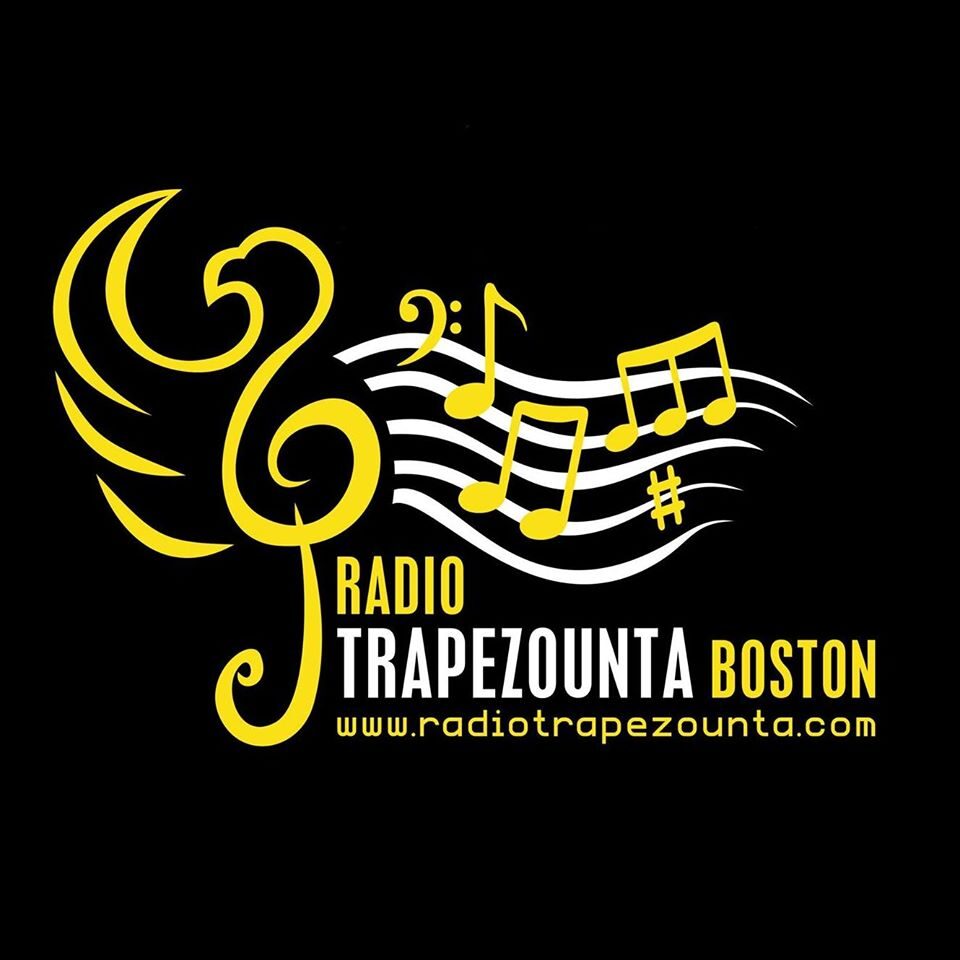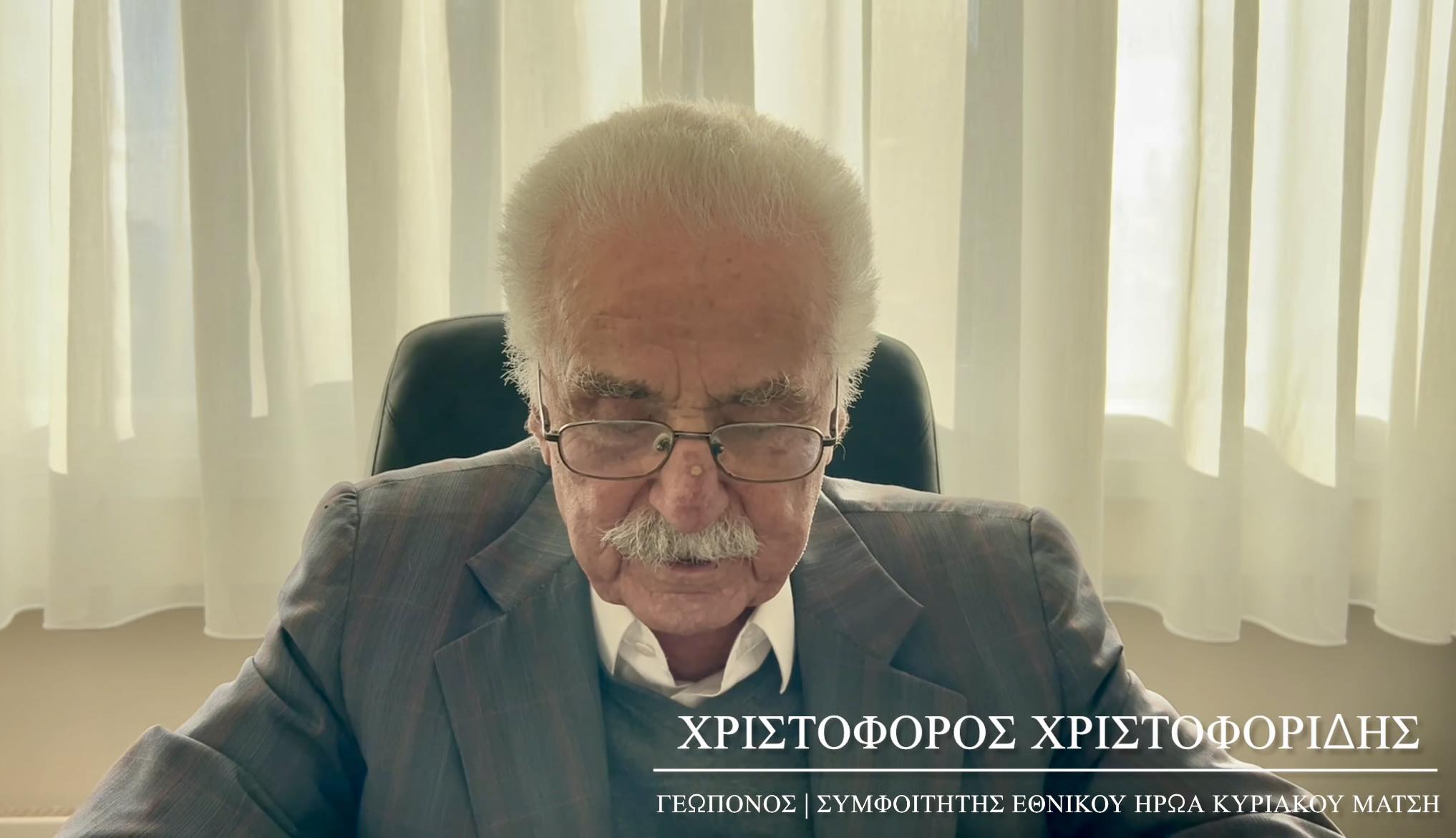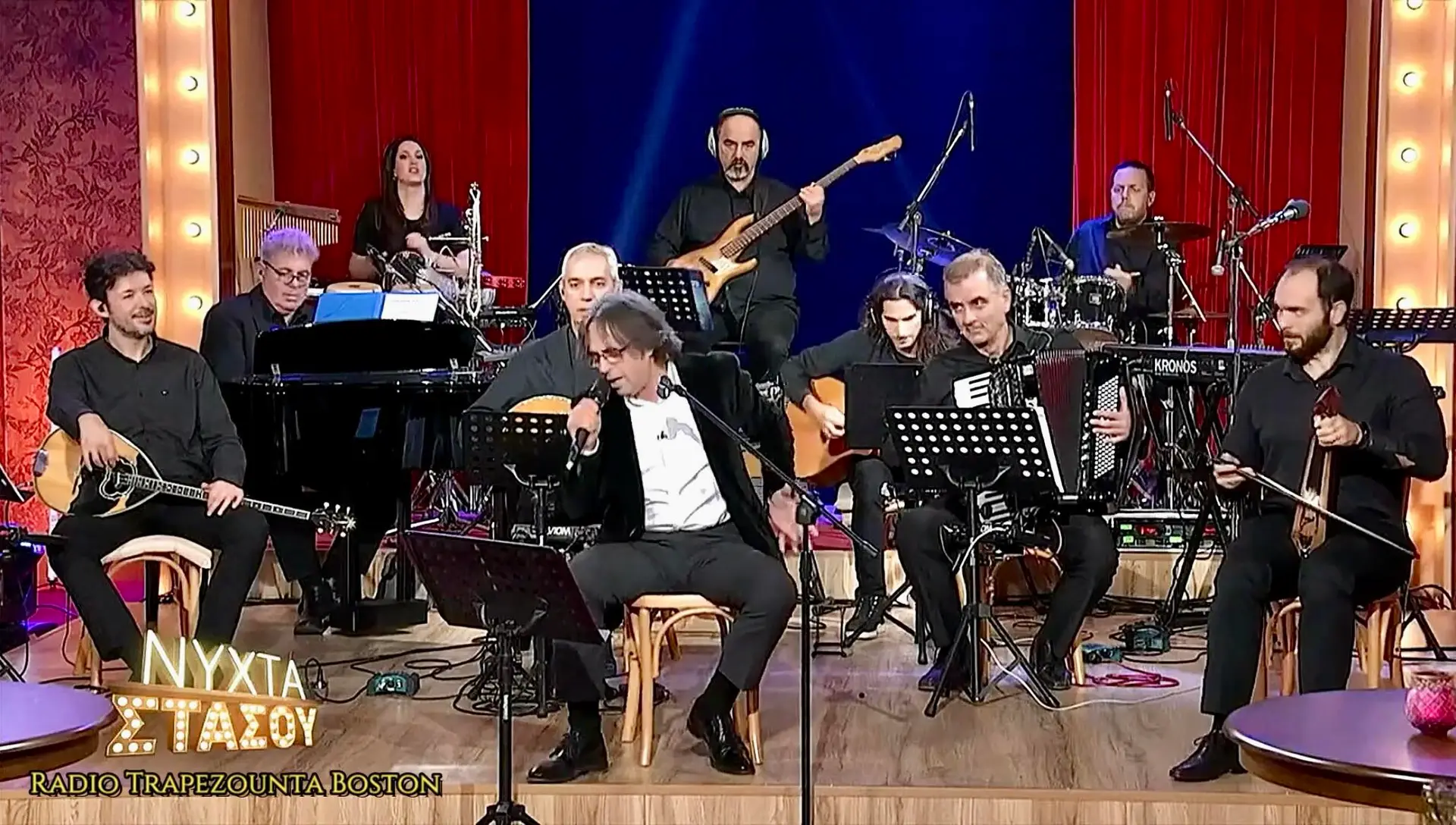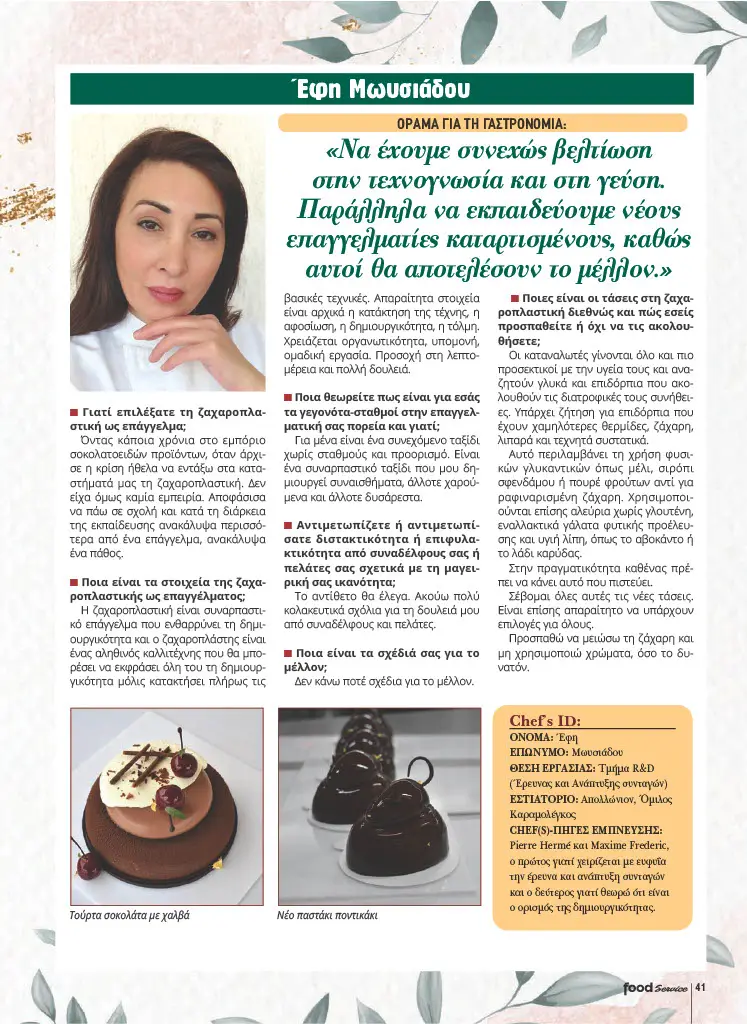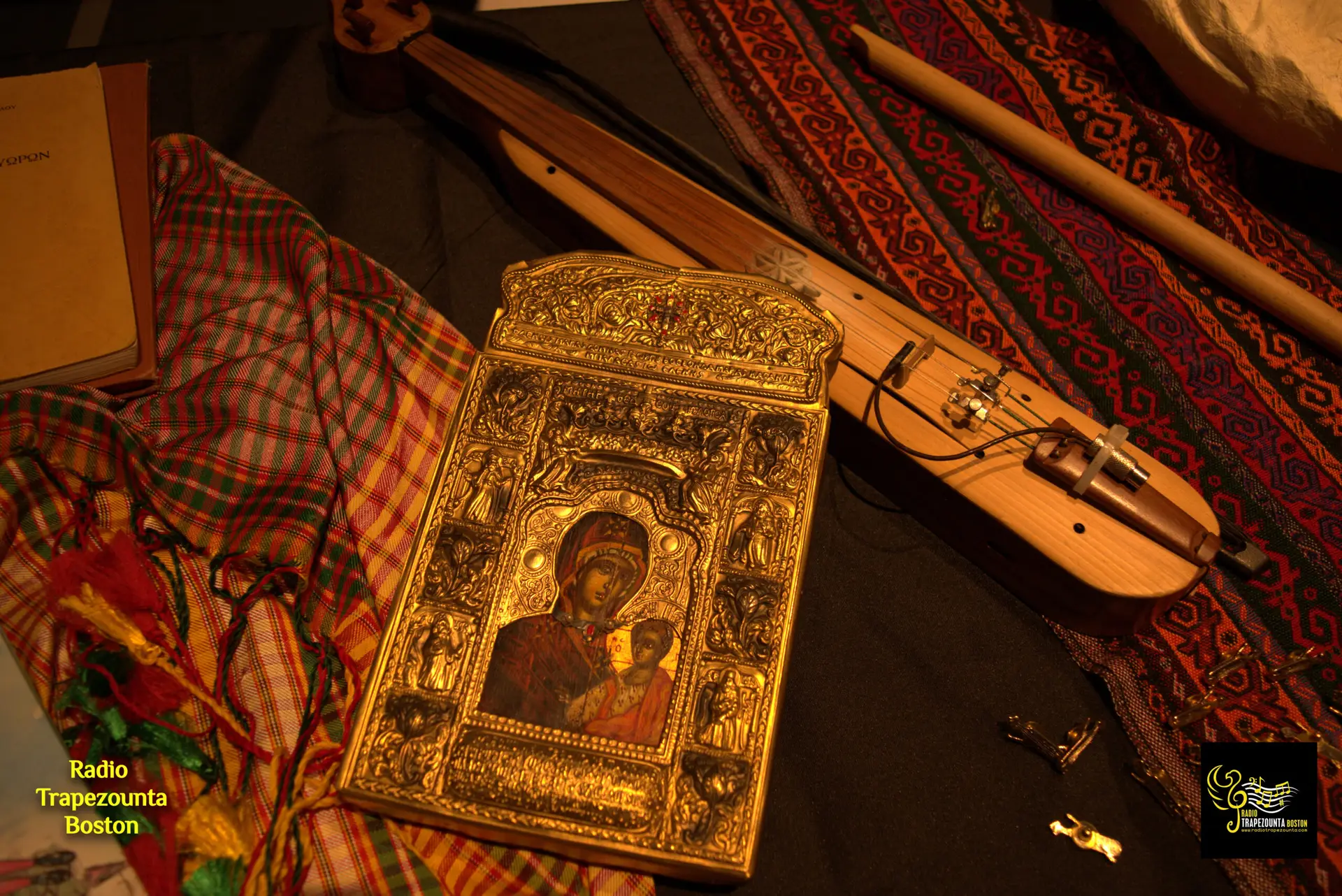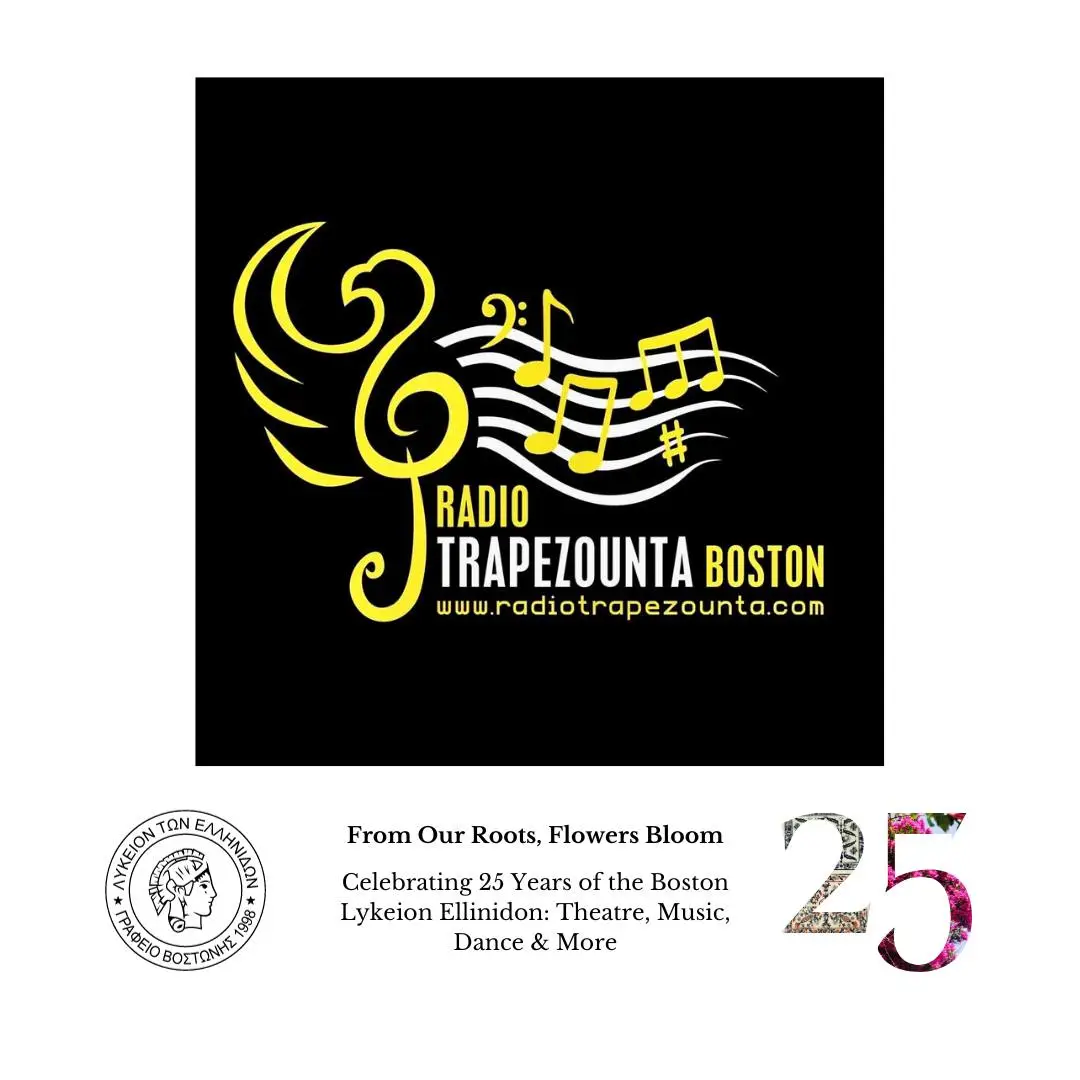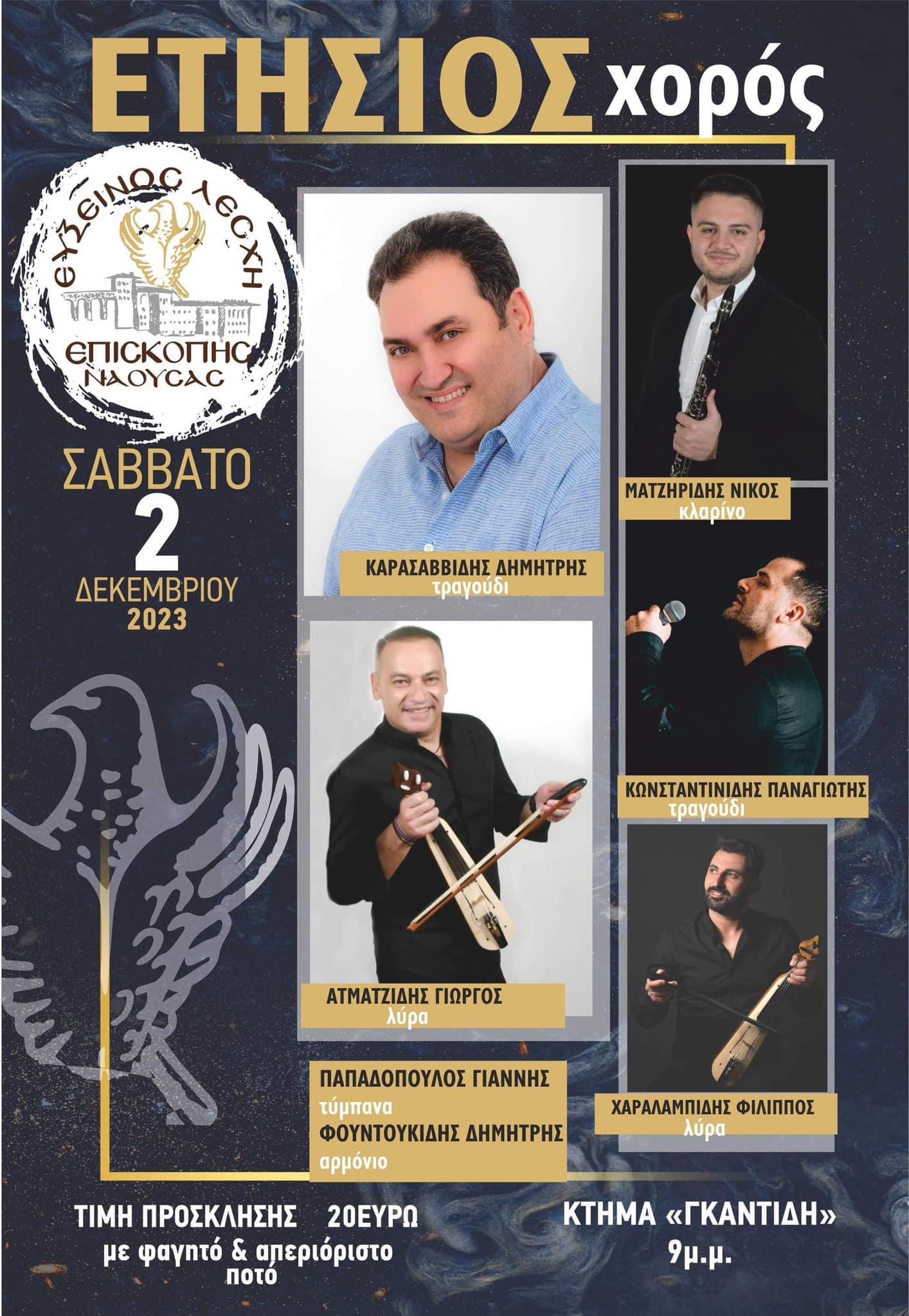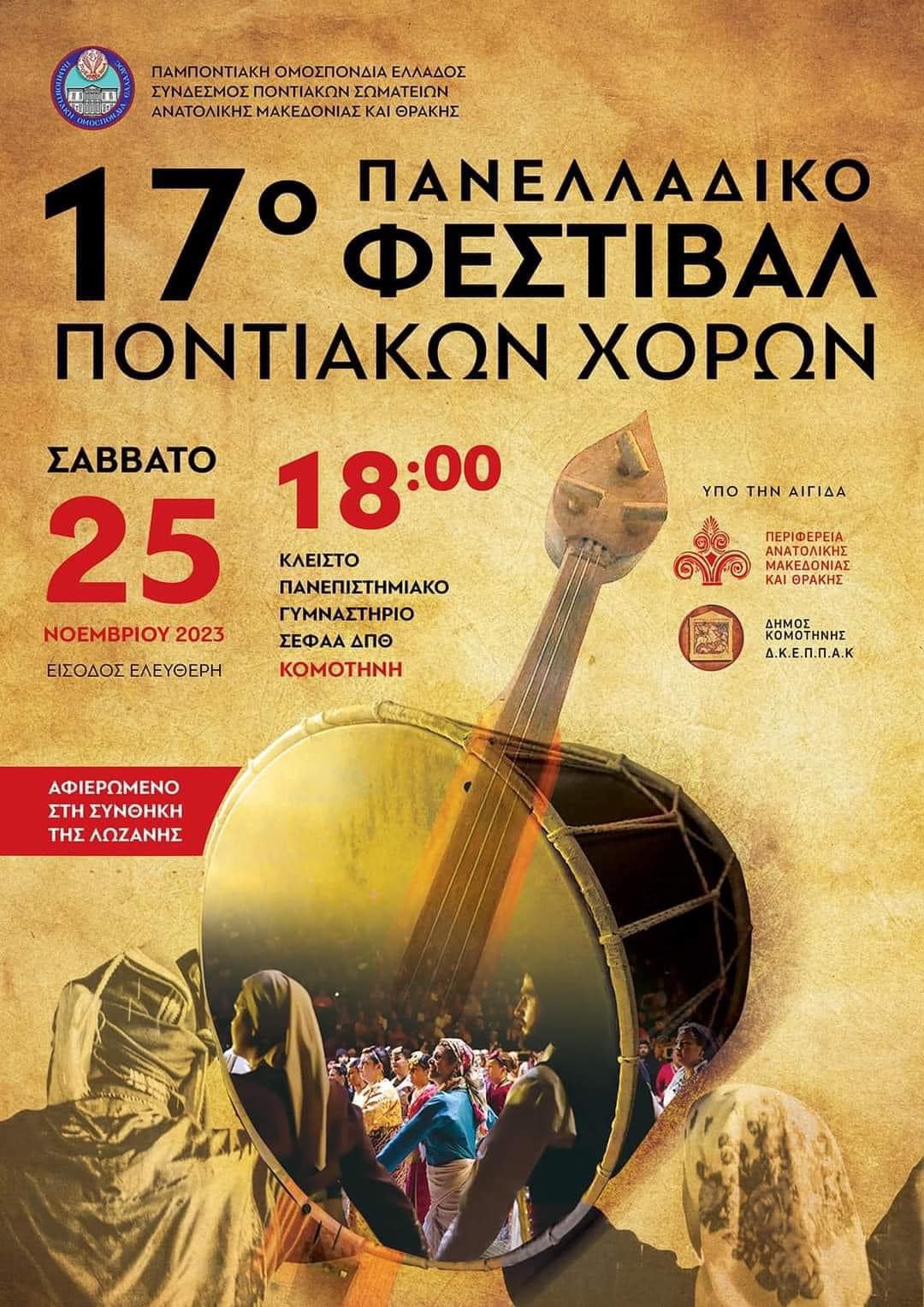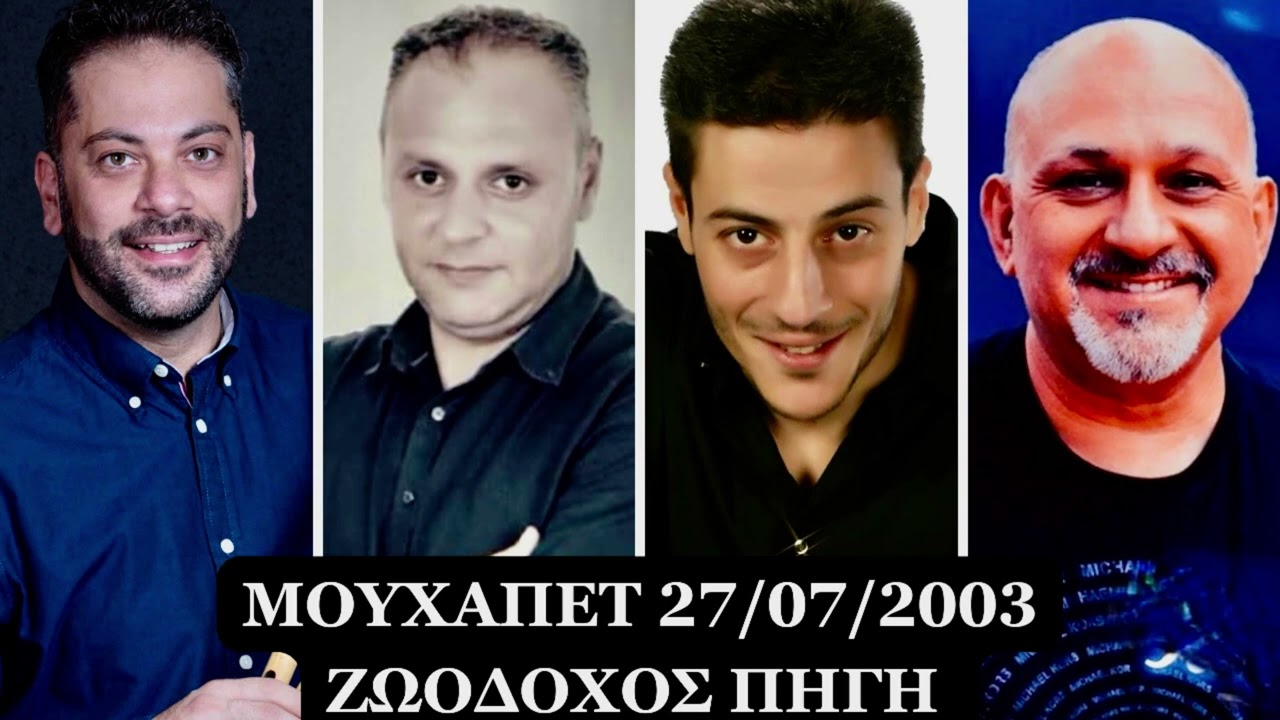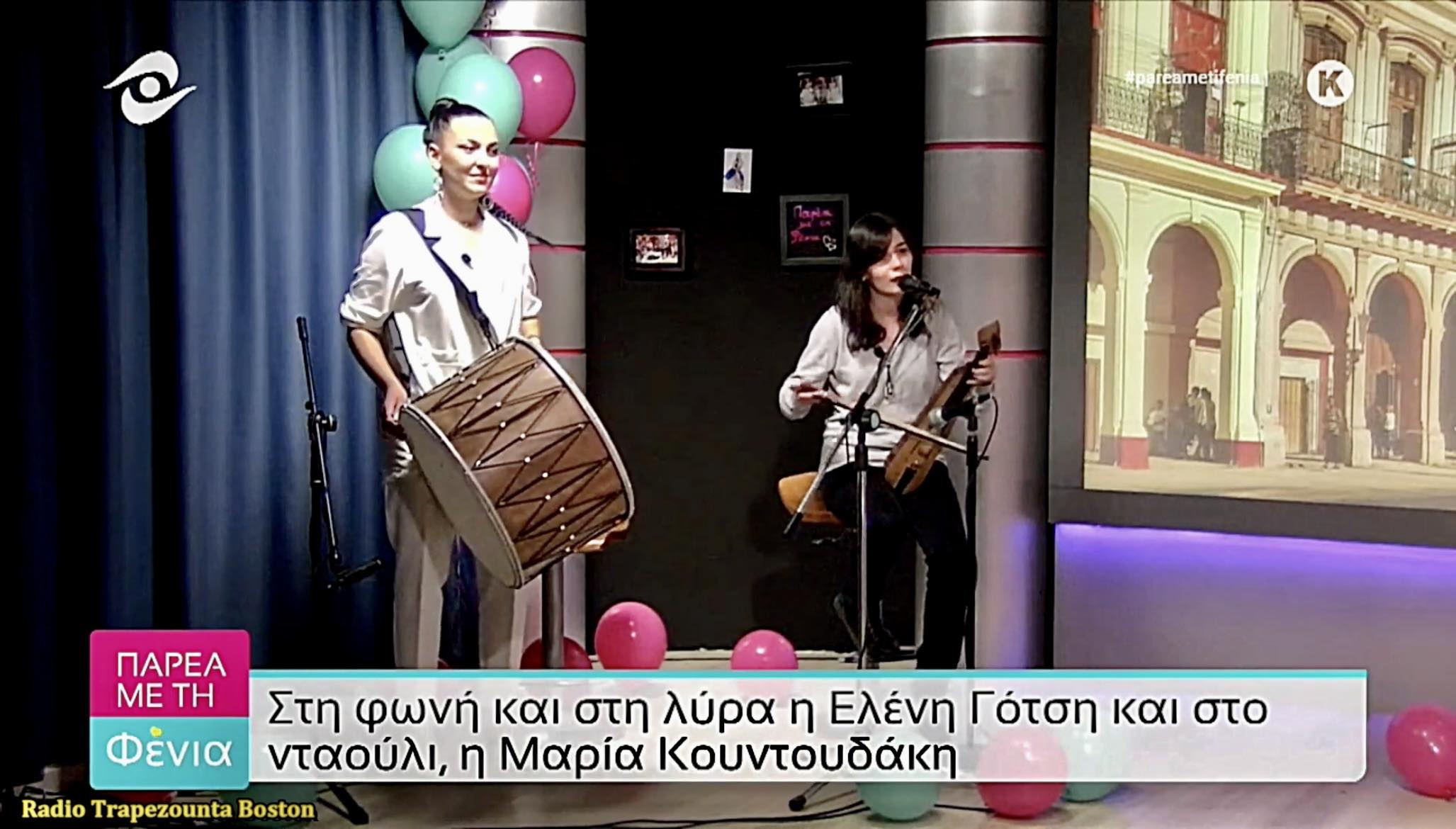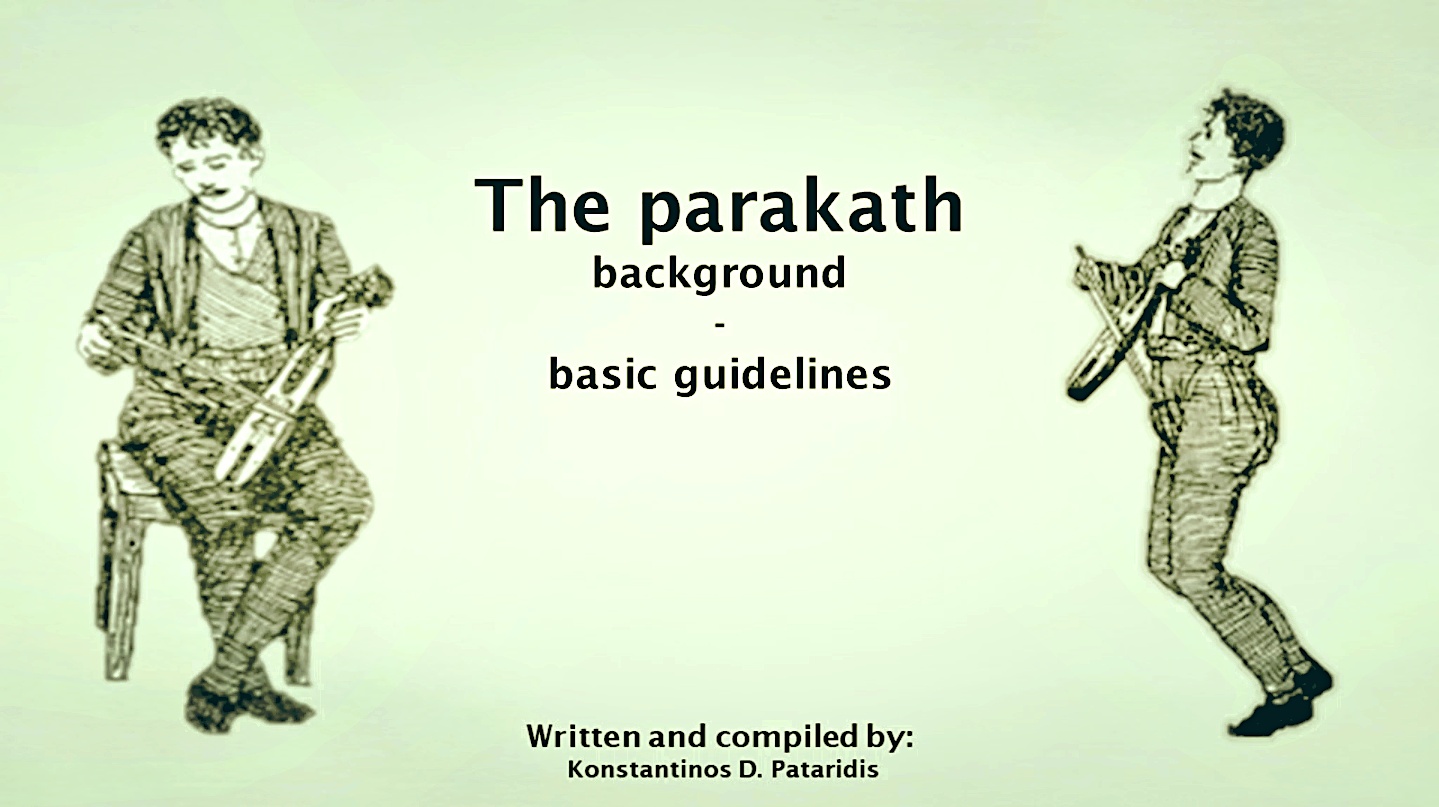The “Parakath” – Konstantinos D. Pataridis || Το “Παρακάθ” – Κωνσταντίνος Δ. Παταρίδης
The "Parakath" - Konstantinos D. Pataridis || Το "Παρακάθ" - Κωνσταντίνος Δ. Παταρίδης
“The Parakath” is a project that has been created by Kostantinos D. Pataridis, a teacher from Melbourne, Australia, with roots from the village of Agios Dimitrios in Kozani, Greece. His family originates from Hapsikioi, Matsouka, Trapezounta, specifically the “Meliananton” area. The video explains in full detail about the famous “parakath”, giving historical references to Pontos as well, and does this all in the English language, giving the opportunity not only to the newer generations who may have difficulty reading and understanding Greek, but also to non-Greek speaking individuals to understand and embrace our musical culture.
Mr. Pataridis explains in full details all the aspects of the “Parakath” with terminology easily understandable. The thirty “rules” are guidelines to which each person participating should follow and respect. They are carefully thought out with respect and dignity.
We cordially thank Mr. Konstantinos D. Pataridis for sharing this video with us. His desire to share his love for traditional Pontian music is something we respect and fully support.
«Το Παρακάθ (The Parakath)» είναι ένα έργο που έχει δημιουργήσει ο Κωνσταντίνος Δ. Παταρίδης, δάσκαλος από τη Μελβούρνη της Αυστραλίας, με ρίζες από το χωριό του Αγίου Δημητρίου της Κοζάνης. Η οικογένειά του κατάγεται από το Χαψίκιοϊ της Ματσούκα στην Τραπεζούντα και συγκεκριμένα των «Μελιανάντων». Το βίντεο εξηγεί λεπτομερώς το περίφημο «παρακάθ’», δίνοντας ιστορικές αναφορές και στον Πόντο, όλα στην αγγλική γλώσσα, δίνοντας την ευκαιρία όχι μόνο στις νεότερες γενιές του εξωτερικού που ίσως δύσκολα καταλαβαίνουν την ελληνική γλώσσα, αλλά και σε φιλέλληνες να κατανοήσουν και να αγκαλιάσουν τη μουσική κουλτούρα μας.
Ο κ. Παταρίδης εξηγεί λεπτομερώς όλες τις λεπτομέρειες του «Παρακάθ’» μ’ έναν τρόπο εύκολα κατανοητό. Οι τριάντα «κανόνες» είναι οδηγίες στις οποίες πρέπει να ακολουθεί και να σέβεται κάθε άτομο που συμμετέχει. Είναι προσεκτικά μελετημένα με σεβασμό και αξιοπρέπεια.
Ευχαριστούμε θερμά τον κ. Κωνσταντίνο Δ. Παταρίδη ο οποίος απλόχερα μοίρασε το βίντεο αυτό μαζί μας. Σεβόμαστε και υποστηρίζουμε την επιθυμία του να μοιράσει την αγάπη του για την παραδοσιακή μουσική του Πόντου.
The Parakath (Το Παρακάθ)
by Konstantinos D. Pataridis
Only relatively recently in our culture did a distinction arise that separated society in two, forming separate classes of music performers and music listeners. Throughout most of the world and for most of human history, musicmaking was as natural an activity as breathing and walking, and everyone participated, it was a way of life. Hence Pontians have the parakath(παρακάθ’).
Pontos in Ancient Greek means sea. Once an inhospitable sea (Axenos Pontos – Άξενος Πόντος), became the hospitable (Efxinos – Εύξεινος) sea (Pontos – Πόντος) as the lure of trade led to the first Greek settlements being established along the coast of the Black Sea after many famous extraditions to the area legends of many myths, most notably that of Jason and the Argonauts who travelled there in search of the Golden Fleece. The first settlement of Sinope was established by the Greeks of Militos towards the end of the 7th century B.C. Hellenism flourished within the region from here on, even though it was constantly threatened by outside attacks or fell under foreign rule. From the Classical and Hellenistic times and during the centuries that followed with the Roman, Byzantine and Ottoman periods, Pontos became an important bastion of Greek presence within the region. The region was characterised by its devotion to its Christian beliefs with over a thousand monasteries and churches built throughout Pontos operating not only as religious beacons but also educational institutions, with communities being organised in parish districts, a society based on the family unit being the foundation of a strong and respectful community and a proud connection to their Hellenic ancestry which guided them in every facet of life.
Ethnic groups lend and borrow characteristics from other cultures which they come into contact with and this was a natural occurrence for the Greeks of Pontos, and the rest of Minor Asia, as they lived in a region which was a melting pot of different cultural groups. Therefore, we have the unique characteristics that make up the cultural identity of Pontian Greeks which marries Western and Eastern influences in a beautiful and harmonious manner.
Food, music and dances all provide a window into a particular cultural group. Each one of these elements of culture are influenced by the surrounding environment in which the culture develops. All three characteristics are incorporated in the tradition known as the parakath (παρακάθ’) where members of the family and neighbourhood (μαχαλά) come together as one and enjoy each other’s company sharing stories, songs and food.
Pontian music is mostly accompanied by song. The basis of Pontian music are the ‘table songs’ known in the Pontian dialect as ‘ta epitrapezia’ (τα επιτραπέζια). ‘Ta epitrapezia’ (τα επιτραπέζια) are the basis of the other types of rhythms which are also accompanied by song/lyrics. It is important to note, that parakathia was a part of life in all the Pontos region. There are accounts from the Western Pontos and Eastern Pontos regions that depict this form of activity taking place. Today, however, it is mostly identified with the regions of Matsouka (Ματσούκα), Santa (Σάντα) and Kromni (Κρώμνη). This is primarily the case as these regions had as the basis of their musical genres ‘ta epitrapezia’ (τα επιτραπέζια).
These other rhythms are traditionally omal (ομάλ), dipat (διπάτ) and tik (τικ). It is important to note that the traditional musical instruments of Pontos are:
- lyra (λύρα) or kementse (κεμεντζέ)
- aggeion (αγγείο – τουλούμ)
- flogera (φλογέρα – σιλιαύριν)
- zourna (ζουρνά)
- ntaouli (νταούλι)
- kemanes (κεμανές)
It is interesting to mention also that in the Western region of Pontos, the violin (βιολί) was used and held in the same way as the lyra. This, however, has not been continued till today. The klarino is also used, especially by Pontians from the Kars (Κάρς) region.
The instrument used at a parakath (παρακάθ’) is most commonly the lyra as everyone can sing on the lyra if it is tuned appropriately. The aggeio (αγγείο – τουλούμ), flogera (φλογέρα – σιλιαυρίν), zourna (ζουρνά) and ntaouli (νταούλι) were commonly used for gatherings held in open spaces, such as at the plateia (πλατεία – square) of the village, in the fields or at the parxaria (παρχάρια).
Most commonly the ‘epitrapezia’ (τα επιτραπέζια) are played at the gatherings known either as ‘parakath’ (παρακάθ) or ‘mouxapet’ (μουχαπέτ). Often these two terms are used interchangeably or as two different terms: essentially they are the same. There needs to be some clarification as to the use of these two terms.
The word para (παρά) is an Ancient Greek word meaning ’next to’. The term parakath (παρακάθ’) means to stay next to or to over-stay. It derives from the two words para and kathomai meaning to sit/stay («παρά καθούμαι»). The term mouxapet, which is also used, is a Turkish word meaning to ‘have a relaxed chat’. Family and friends would visit each other and spend the nights chatting, telling stories and if a lyra player was present (or not) they would sing about their feelings, sorrows and nostalgias.
These gatherings were frequent, primarily, during the long winter months (shimongon – χιμονγκόν), when the days were short and the nights were long. of Winter in Pontos includes the months of December (Χριστιανάρτς – Christianarts), January (Καλαντάρτς – Kalantarts) and February (Κούντουρον – Kountouron). December was referred to as Χριστιανάρτς – Christianarts as it is the month in which Jesus was born. January is Καλαντάρτς – Kalantarts as it derives from the Latin word calandae which means the first of the month. February was referred to as Κούντουρον – Kountouron as it is a short month – the word Kountouron (Κούντουρον) meaning limp. The cold weather in many parts of Pontos could last up to six months, as it was a very mountainous region. In some parts of Pontos winter started as early as August know either as Αύγουστος ή Αλωνάρτς.
Εξέβαμε σον Αύγουστον και ση χιονή την άκραν
(We have entered August, we have reached snows edge)
In Inepoli, winter was linked to the feast day of St. Phillip on 14th November:
Καλώς τονε τον Φίλιππο, τα χιόνα φορτωμένος
(Welcome to Phillip, carrying the snow)
The months of the year in Pontian:
Καλαντάρτς – Ιανουάριος – January
Κούντουρον – Φεβρουάριος – February
Μαρτς – Μάρτιος – March
Απρίλτς – Απρίλιος – April
Καλομηνάς – Μαίος – May
Κερασινός – Ιούνιος – June
Χορτοθέρτς (Θερ’νος) – Ιούλιος – July
Αλωνάρτς – Αύγουστος – August
Σταυρίτες – Σεπτέμβριος – September
Τρυγομηνάς – Οκτώβριος – October
Αεργίτες – Νοέμβριος – November
Χριστιανάρτς – Δεκέμβριος – December
It was common for more than one ‘immediate’ family to live in the same dwelling. Traditionally, the sons would live with their family and the daughters, once married, would leave their family home and would go and live with their husbands’ family. Therefore, the long winter nights would be spent gathered all together, gathered around the burning fire. It would be common to have a number of generations residing together as marrying and having children at a young age was common. Therefore there would be great grandparents (liko kalomana and likopappos), grandparents (kalomana – pappos) living all together. The warmth of the fire along with the warmth of being together as a family, created an enjoyable environment. Extended family members or friends-neighbours (geitonades – γειτονάδες) would also be invited to these gatherings which would take place after communication.
Παρακαλώ γειτονάδες σο παρακάθ’ μη πάτε
(I implore you neighbours, do not go to the parakath)
τ’ εμόν τ’αρνί μ’ μικρίκον εν’ αφίστ’ ατό ας κοιμάται
(My love – arni literraly translates to sheep is young, let it her sleep)
The family ‘hosting’ the parakath (παρακάθ’) would provide various offerings (κεράσματα). The foods served would be reflective of the resources that were available to them. The ingredients had to be easily stored and have a long life. Flour was the basic ingredient which was used to create numerous staple dishes which would accompany the tsipouro served at the parakath, such as perek, pishia, siron, makarina… These along with other dishes using plant-based ingredients, such as mavra laxana and soups such as tanomenon sourva were the basis of Pontian cuisine. The dishes were simple, rustic and tried to use the rich ingredients such as butter at a minimum and only when needed. A common saying was the following for someone who was loose with using the ingredients or wasting money:
Ατός που εχ’ πολλά βούτυρον, βαλ’ και σα μαύρα λάχανα
(He who has a lot of butter, adds it to the mavra laxana)
Pontian Greeks were devout Christians and therefore they would fast for major feasts such as Easter (Λαμπρή), Christmas (Χριστούγεννα) and the Dormition of The Theotokos (15th August – Δεκαπενταύγοστο). They would also adhere to abstaining from meat on Wednesdays and Fridays. They would consider it as a great sin if they broke the fast. If they broke the fast, they would say «μαντζίρισες» (mantzirises) derived from the word for yoghurt – mantzira (μαντζίρα). Therefore, this word would be used to symbolise the consumption of anything that derived from an animal and was not to be consumed during fasting. One way to stop young kids from breaking the fast was to create a little bit of fear and mystery. They would create a creature called ‘koukara’ (κουκαρά) which would hang in the house for the full fasting period. This was made of an onion and 7 feathers. Each feather was poked into the onion creating a scary looking creature in the eyes of the innocent children. Further, if they were naughty, an adult would pull on the string to make the ‘koukara’ (κουκαρά) move. This made it an even more imposing image for the little children. Each feather would then be pulled out at the end of the week until no feather was left – this would then mean it was Easter and the fasting period was over.
Other more simpler offerings would include cheese (τυρί), olives (ελιές), dried nuts (ξηρούς καρπούς), perek (περέκ), pishia (πισία), some form of soup (σούπα), boiled chicken (βραστή κότα) and pickled vegetables (stipa – στίπα). These offerings (κεράσματα) would be served to accompany the flowing tsipouro (τσίπουρο) or wine (κρασί). Food of course, is an integral part of a cultural identity. Analysing the cuisine of a cultural group can indicate provide an insight into the development of that society. The local environment dictated not only what you would consume, but how you would prepare and cook it. The establishment of the spice trade and the merchant Silk Road, which went through Ponto, are two examples of the goal great lengths many took to obtain desirable ingredients. The way food was also preserved was also determined based on the climate and lifestyle. The foods that form the basis of the Pontian cuisine and are served at the parakath (παρακάθ) are reflective of the climate and nature of the region that this group of Greeks resided within. They are preserved foods which would last the long winter months (το βίο) and dishes that have as their main ingredients pasta made of wheat flour (ζυμαρικά – zimarika) or corn flour (τσουπαδένιο/λαζουδένιο – φούρρνικον – αλέυρι), which could be used to make many different dishes with a number of variations to match the time of the year – whether they served it at a special celebration such as an engagement (σουμάδια/σιμάδια), wedding (χαράν), baptism (φωτίσια) or consumed it during a holy fasting period. Pontian cuisine was diverse and adapted to the changing climate during the year, made up of hearty food keeping everyone warm for the winter and refreshed in the summer.
The parakath (παρακάθ) acted as a form of secret school (κρυφό σχολειό), through which the older generations passed down to the younger generations the language and the traditions. The Pontian dialect was an oral language and as such was not utilised in formal documents and writing. These gatherings were important due to the fact that the Greeks who lived within the Pontos region were disconnected geographically (and politically) from the rest of Greece. This resulted in the continuation-maintenance of the unique dialect spoken by the Greeks of the region of Pontos (known today as Pontiaka – Ποντιακά) which was directly linked to the Ancient Greek dialect. Furthermore, they acted as a barrier against the tyranny of the ruler who wanted to quash their subservients’ culture.
The gatherings would be accompanied by tales – mesel (μεσέλ). Most often the children would sit and listen to their kalomana (καλομάνα – grandmother) or even liko kalomana (λύκο καλομάνα – great grandmother) tell various stories about mythical creatures such as dragons (δράκους) and witches (μάϊσες). These stories would be full of adventure. They would capture the imagination of the children and would provide their full attention to the storyteller. Some tales would even be intended to scare the children so that they would behave and obey the wishes of the older members of the family. This aspect of the parakath (παρακάθ) is often overlooked today.
An important aspect of these gatherings was poetry, music and song. Traditionally, the poet/lyricist/songwriter writes complete songs with a beginning and an end, like the Ancient Greek tragedies. It is therefore not unusual that the word for song in the Pontian dialect translates as tragedy – τραγωδίαν.
The poems, which were written for Digenis Akritas, also called Digenis Akritas Basileios, were shared and recited at these gatherings. He was a Byzantine epic hero celebrated in folk ballads (Akritic ballads) and making reference to his parentage, boyhood adventures, manhood, and death. Based on historical events, the epic, a blend of Greek, Byzantine, and Asian motifs, is said to have originated in the 10th century and was further developed in the 12th century. It was recorded in several versions from the 12th to the 17th century, the oldest being a linguistic mixture of popular and literary language.
Ακρίτας κάστρον έχτιζεν
Akrita, the protector of the borders was the hero of epics that had as their basis patriotism, a love for nature and strong family affections. The Akrita is the personification of the strong Hellenic culture and ideals which transcend centuries and withstand every hardship and threat. He never loses hope, loves life and has plans for a bright future for himself, his family and his nation. He is always willing to sacrifice his life for his freedom. The Akrita, who lives in the most remote parts of the Byzantine Empire, has two tasks which he carries out simultaneously – cultivating the land and protecting the nation’s borders. He always is prepared to leave his work to stop any advances from foreign forces trying to enter into the Empire’s borders.
Ακρίτας κάστρον έχτιζεν
(Akritas built a castle)
Ακρίτας περιβόλιν
(Akritas – built – an orchard)
σ’έναν ομάλ, σ’έναν λιβάδ’,
(at a plain, at a meadow)
σ’έναν ‘πιδέξιον τόπον
(at a location)
Όσα του κόσμου τα φυτά
(All of the world’s plants)
εκεί φερ και φυτεύει
(he brings there to plant)
όσα του κόσμου τ’αμπέλια,
(All of the world’s grapevines)
εκεί φερ και αμπελώνει,
(he brings there and plants)
όσα του κόσμου τα νερά,
(All of the world’s water)
εκεί φερ κι αυλακώνει,
(he brings there via water-channels)
όσα του κόσμου τα πουλιά,
(All of the world’s birds)
εκεί παν’ και φωλιάζνε
(come there to nest)
Κελαϊδαναν και έλεγαν:
(The bird’s chirped and said)
«Πάντα θα ζει Ακρίτας»
(Akrita will always live)
Κι έναν πουρνόν, πουρνίτσικον και Κέρεκην ημέραν,
(And one morning, early morning on a Sunday)
κελαϊδεσαν και είπανε:
(they chirped and said)
«πως θα αποθάν Ακρίτας»
(that Akrita will perish)
Ακούς, ακούς, Ακρίτα μου,
(Are you listening, are you listening my Akrita)
ντο λένε τα πουλόπα, ντο λένε άλλο κι λέν
(what the birds are saying, they aren’t saying anymore what they used to)
λεν θα αποθάν Ακρίτας
(they are saying Akrita will perish)
Ατά μικρά πουλόπα ειν ντο λένε κ’εγροικούνε
(They are young birds, they don’t know what they are saying)
αφήστε ‘τα τα παλαλά ας τραγουδούν και ας χέρουν(ταν)
(leave the silliness, let them sing and be happy)
Ακρίτας ειν’ αθάνατος, θα ζει εις τους αιώνες
(Akritas is immortal, he will live for centuries)
Ακρίτας ειν’ ένας λαός, πάντα θα ζει Ακρίτας!
(Akritas is a whole people, Akrita will live forever!)
Two beautiful poems/songs which depict both the importance of nature and love are the following:
Lemona – Η Λεμόνα (The Son’s mother)
This poem/song describes the relationship between man and mother nature. Hle (Sun) mona (mother) is the Son’s mother – mona being the Latin word for mother. It is a conversation between a human and mother nature, with the latter making reference to feeling the heavy burden and exploitation of nature by humans.
Σιτ’ επέγνα ομάλια-ομάλια
(As I walked/went, calmly)
είδα ορμάνια και λιβάδια
(I saw hills and flat plains)
και σην άκραν τρέχ’ πεγάδι
(at its corner, nearby water ran thru)
και ‘ση πεγαδί την άκραν
(and at the water trough’s corner)
έστεκεν δέντρον και μέγαν
(stood a tree that was very tall/large)
τα νεράντζια φορτωμένον
(full of tangerines)
Έπλωσα να παίρω έναν κι εχολιάστεν η Λέμόνα
(I put out my hand to take one and Lemona became upset)
Και τη ήλ’ η μάνα εκούξεν
(The Sun’s mother – nature’s mother called out)
– Ντο λαλείς ναι Μεληδόνα;
(what are you saying?)
-Ντο χολιάσκεσαι Λεμόνα;
(why are you upset The Sun’s mother?)
Πάσκ’ ετσάκωσα κλαδόπον;
(Supposedly because I broken a branch?)
γιαμ εμάραινα φυλλόπον;
(Did I make a leaf become wilted)
Κι αν ετσάκωσα κλαδόπον, να τσακούται το χερόπο μ’
(And if I broke a branch, let my hand break)
Κι αν μάραινα φυλλόπον, να μαραίνεται το ψόπο μ
(And if I made a leaf wilt, let my soul wilt)
Ο Ήλεν μαραίν’ φυλλόπα κι αέρα τσακών’ κλαδόπα
(The sun makes the leaves wilt and the wind breaks branches)
Χαμέμηλον
This poem/song tells the story of a broken promise between a young man and a young girl who vow never to separate and seal this pact with a kiss. The dwarf apple tree however feels guilty and responsible for their separation because they made that promise below it (at its root).
Και ντ’ έπαθες χαμέμηλον
(What has happened to you dwarf apple tree)
Και στέκεις μαρεμένον
(and you are standing wilted)
Γιαμ η ρίζα σ’ εδίψασεν
(Are your roots thirsty)
Γιαμ ο καρπό σ’ ελάεν
(or has your fruit been changed/affected?)
Γιαμ ασά χαμελόκλαδα σ’
(or of your lower branches)
Κανέναν εζαλίεν
(have any been tampered with?)
Νια η ρίζα μ’ εδίψασεν
(Nor my roots are thirsty)
Νια ο καρπό μ’ ελάεν
(Nor has fruit been changed/affected?)
Νια ασά χαμελόκαδα μ’
(nor of my lower branches)
Κανέναν εζαλίεν
(have any been tampered with?)
Έναν κορίτσ’ κι έναν παιδίν
(A girl and a boy)
Ση ρίζα μ’ εφιλέθαν
(Kissed at my root)
Εποίκαν όρκον κι όμνισμαν
(They made pact and a promise)
Να μη εφτάν’ χωρισίαν
(that they would not separate)
Ατώρα εχωρίγανε
(Now they have separated)
Γιαμ έχω ασό κρίμαν
(Would it be, that I have responsibility/guilt – for their separation)
The main melody that these traditional poems are assigned, especially the Akritika epics, is that of dipat (δίπατ). Dipat is used for a number of reasons especially because of its serious, melodic, calm and gracious rhythm, it provides the appropriate tempo and melody. It has three parts: music – movement – poetry. The rhythm of dipat is said to also be used because it reminds of a byzantine hymn. It is also called ‘kodespiniako (‘κοδεσπενακόν ομάλ), even though it is danced by both males and females, it is said to be the dance of the ‘lady of the house’, which was mainly danced by members of the family and the community of a respectful age. Therefore, it has also been linked by many researchers to resemble the Ancient Greek customary dance performed in honour of the goddess of the home, Estia. Like most Pontian dances, it is danced in a closed circle with no leader.
Through these gatherings emerged the single verses, which express feelings and one-off circumstances. Single lyrics (μονόστιχα – monostixa) are phrase like, single poems:
For example:
Αέτς εν πουλίμ, αέτς εν, αέτς αμόν ντο λέω
(it is as I say my love, it is, it is as I say)
την ώρα ντο κ΄ελέπω σε κάθουμαι κα και κλέω
(the time that I do not see you, I sit down and cry)
The single (μονό – mono) verses (στιχά – stixa) form a separate part, however a unique part, of Pontian poetry. It is widely stated that the single verses (μονόστιχα – monostixa) emerged in the 15th century (Pontic encyclopedia).
As a rule, Pontian lyrics are formed by two separate lines, generally 15 syllables in total – 8 in the first line and 7 in the second, which join together to form one verse. There are other variations, however this is the general rule. Repetition of similar sounds (usually, exactly the same sound) in the final stressed syllables and any following syllables of two or more words is an important rule of the single verse. For example, in the above lyric, the endings are in bold to highlight this rule. Most often, this kind of perfect rhyming is consciously used for effect in the final positions of lines of poems and songs.
The single verse is unique. It expresses feelings and thus can be created on the spot. Many of the single verses contained within this piece, emerged as on the spot as expressions which have been sung and passed down from generation to generation. There may variants of the same single verse and this depends on reginal dialect and the singer replacing a word with one they feel is more suitable or descriptive.
The single verses express and make reference to all aspects of life expressing hardships endured during daily life, the difficulty of being away from one’s loved-ones because of work (NOTE: migration because of work purposes is not a 20th century phenomenon), love and they sung and commemorated their natural surroundings also.
The lyrics and songs about living abroad were prevalent. Many Pontian men, from all regions, would find themselves migrating either internally to work at the mines at Argiroupolis and later at Nikopolis or Ak Ntag Maten, or externally to Constantinople or various southern Russian cities in order to find work and to raise money to support their families back home.
Ανάθεμα μίαν την Πολ’, και δεύτερον τη Ρωσίαν
(Be damned in the first instance/once, the City – Constantinople – and secondly Russia)
τριά φοράς τη θάλλασαν, π’ ευταεί τη χωρισίαν
(three times the sea, which creates the separation)
The lyrics indicated their longing for home and their anticipation to return back to their loved ones.
Ανάθεμα και τα μακρά οθέν κι παέι λαλίαν
(Be damned the far places, where my voice does not travel)
το μάτια΄μ εσκωτείνεψαν, ασ’ σήν αροθυμίαν
(my eyes have darkened from the nostalgia)
They also indicated the time of when migration occurred and when they would return. Everyone wanted Spring to come, expect the young lovers who would be separated again as it was this time of the year that the migration occurred:
Έρθεν, αρνόπο μ’ άνοιξη κι ο κόσμος πρασινίζει
(Spring has come my loved one/my sheep – literal translation, and the world is becoming green)
η χωρισία ‘σουμωσεν, ποίος θα ταγιάνίζει
(separation is approaching, who will be able to cope with it)
The following lyric states that everyone looks forward to Spring, except for the girl who awaits for Autumn, the time of the year that her loved one would return home:
Ουλ περιμέν’νε την άνοιξην, κ΄η κορ ‘το Μοθοπώρι
(Everyone awaits Spring, and the girl Autumn)
Τ΄άθια ανθούν την άνοιξην και η κορ το Μοθοπώρι
(The flowers/trees blossom in the Spring, and the girl in the Autumn)
Αρνι’μ’ παρακάλα τον Θέον να δεί με και κερδίζω
(My love – literally sheep – Pray to God, to give me and win – develop wealth)
και έρχουμαι την Άνοιξην και εσέν χαρεντερίζω
(and I will come in the Spring, so I can make you happy)
It is via this migration to the southern parts of Russia occurring due to the close trade and political ties held with the neighbouring country that the Greeks of Pontos began to settle in this area and the Greek communities of the region of Kars were established, especially in the mid-to late 1800’s as the mines of the region of Argyroupoli (Kimihane) began to close. Further to this many found refuge in Russia, especially from Eastern Pontos, escaping the pain and suffering endured after World War I by Christians in the region. In regards to music, this led to the development of a unique genre from this region with adaption of musical traditions of this region influencing the development of the traditional ‘Karslidika’ epitrazpezia that we have today and influences in dances. Further to this it provides us with certain foods such as varenika(βαρένικα), borscht (πορτς) and to some extent pirozhki (πιροσκία).
Mostly it was the the older members of the family that would express themselves through this form of musical poetry. This reflected the nature of Pontian society which was based on providing the utmost respect to the older members of the community. The younger members of the family would also be encouraged to participate but they would sit quietly and patiently observing until it was their turn. Those with melodic voices were respected, however, everybody participated regardless of how well they could sing.
The parakath (παρακάθ) was not a singing contest but a way to express one’s feelings:
Εγώ είμαι εκείνο το πουλίν, το παραπονεμένο
(I am that bird, the hurt one)
ντο κελαίδει σο χάραμαν, σα δέντρα απές κρυμμένο
(that sings at dawn, hidden in the trees)
Ζωή πέι με ντο εποίκα σε, και ατώσα πόνια δίσ’ με
(Tell me life what I have done to you, and you hurt me so much)
θέλω να ζω να χαίρουμαι κι εσύ πάντα κλαινίσ’ με
(I want to live and be happy, and you always make me cry)
Απές σην μάυρην θάλασσαν θα χτίζω το σπιτόπο μ’
(Within the Black Sea I will build my house)
κανείς να μη ελέπ’ πως καίγεται το ψόπο μ’
(so no one can see how my soul is burning)
Τ’ εμόν η κάρδια γεραλήν, αν κλαιώ θα ματούται
(My heart is hurting, if I cry it will bleed)
αμόν τη λάμπας το γυαλίν, απάν αν κρους τσακούται
(just like the glass of a lantern, if you hit it, it will break)
The μονόστιχα – monostixa are also greatly used in regard to expressing ones love. The poet proclaims his love through the single verse, expresses his feelings towards a loved one, compliments the girl he loves or tells of the longing for a love or the lost love.
Απάν σον κόσμον αγαπώ, έναν θεόν και σένα
(On this earth I love, one God and you)
αν θέλτς δέβα σο άνοιχτιρ, και εβγάλ τεμόν το ψέμα
(if you want go to the Holy Books, and uncover my lie)
Ατά το ομμάτια που ελέπ’, πώς να μην παλαλούται,
(These eyes which one sees, how can he not go crazy)
άψιμον να εν’ καίγεται, γκρεμός να εν’ σκοτούται
(if they were fire he would burn, a cliff he would die-jump off)
Ήλιος ασ’ σην ανάτολην, είδε σεν και φοβέθεν
(The Sun in the East, saw you and became scared)
ατός ατόσο ‘κι έλαμψεν την ώραν ντο γενέθεν
(it did not shine as bright, the moment it was born)
Εγώ αγαπώσε κι έρχομαι και εσύ παραμερίζ’ με
(I love you and come to you, and you ignore me)
το σύλεγον καρδόπον εϊς’, σίτια ολόν κλενίσμε
(your heart is stubborn, you always make me cry)
Εγάπ είχα και χάσ’ ατό, και με την αμελία μ’
(I once had a love, and lost it, with my overlooking her)
σα ξένα χέρια ελέπ’ ατέν και τρώει με η αροθυμία
(I see her in someone else’s arms, and nostalgia eats at me)
He would also promise to act beyond his ability to fulfill her wants and see her:
Του ηλ’ το φώς θα κουβαλώ και ξύνω απές σο ρέμαν
(The Sun’s light I will carry, and spill it in the waterway)
για να βραδύν ολίγοραν, και έρχουμαι με τεσένα
(so it can go dark quickly, so I can come with you)
Όλια τ’ άστρα του ουρανού, να ρούζναν απ’ έναν έναν
(If all of the stars of the sky were to drop one by one)
θα τοπλάευα και εδίν’ ατά πουλί μ’ σε εσέναν
(I would collect them, and I would give them to you)
It is said that he who has never loved, has never accomplished anything of essence…
Εγάπ που κι εγάπεσεν φιλία που ‘κι εποίκεν,
(Love who has not loved, he who has not kissed)
Χαίβαν’ έρθεν και επέρασεν, γαλαπαλούκ εποίκεν
(He came and left as a donkey, he did nothing of value)
There are many of these μονόστιχα – monostixa; the number cannot be counted as illustrated by the following:
“εγώ έμν’ π’ ετραγώδεσα
(I am who sang)
εφτά νύχτας κι’ ημέρας
(seven nights and days)
ση Δεσποινίτσας την χαρά
(at Despinitsas celebration (hara in Pontiaka means wedding)
ση Κωσταντή τον γάμο
(at Kostanti’s wedding)
εφτά ημέρας σο πόδαρ’
(seven days on foot)
και ναι, πουθέν κι έκατσα
(and I did not sit anywhere)
έπαιξα κι ετραγώδεσα
(I played and I sang)
το στόμα μ’ κι’ εστάθεν
(my mouth did not stop)
έναν τραγώδ’ δύο φοράς
(one song twice)
κανείς κι έκ’σεν να λέγω”
(no one heard me say)
(Encyclopedia of Pontian Hellenism, 3rd Book, page 123, Publisher: Malliaris Paidia)
As the above lyrics indicate, the lyrari/singer (λυράρι-τραγουδιστή) sang and played for seven days and nights at a wedding and no one heard the same song twice.
Quite often there are references to animals in Pontic lyrics. This is frequent in the love songs/lyrics (τραγούδια της αγάπης), songs of weddings (τραγούδια του γάμου) and the akritika songs (ακρίτικά άσματα). A male is often referred to as an eagle – aetent – aeto (αετέντς) and as being 30 times Greek – trantellena (τραντέλλενα). Both animals represent strength, such as that which a male should exude. The following poem demonstrates this fact and is dedicated to the unknown soldier.
Αητέν’ τς επαραπέτανεν
Αητέντς επαραπέτανεν ψηλά ’ς σα επουράνια
(An Eagle soared to the heights of the heavens)
Και τα τζαγκία ατ’ κόκκινα και το τσαρκούλν’ ατ’ μαύρον,
(it’s feet were red and his beak/covering was black)
Εκράτ’νεν και σα κάρτζια του παλληκαρί’ βραχιόνας
(In his claws a brave youth’s hands he grasped)
Αητέ μ’, για δός με ασό κρατείς, για πέ με όθεν κείται.
(Eagle, would you give me what you hold?, (tell me where the body lays?)
Ασό κρατώ ’κι δίγω σε, αρ όθεν κείται λέγω.
(What I hold I won’t give you, where the body rests I won’t say)
Ακεί σο πέραν το ραχίν, σ’ αλάτ’ επ’εκεί μέρος,
(Over there beyond the mountain and farther on beyond the conifer trees)
Μαύρα πουλία τρώγν’ ατον κι άσπρα τριγυλίσκουν
(The black birds devour him and the white birds fly around him)
Φατέστε πουλία μ’, φατέστε, φατέστε τον καρίπην,
(Eat birds, eat, eat the lonely hero)
Σην θάλασσαν κολυμπετής, σ’ ομάλια πεχλιβάνος,
(At sea an honoured swimmer, at the plains a wrestler)
Σον πόλεμον τραντέλλενας, ρωμαίικον παλικάρι
(He participates in war, as he is 30 times Greek, a brave Christian lad)
The eagle (single headed – μονοκέφαλο) is also a very important symbol of Pontos.
In ancient times, the eagle was one of the symbols of Zeus, along with the thunderbolt and oak. The Kingdom of Sinope adopted the single headed eagle as its coat of arms in the 4th century B.C. Coins of the Kingdom of Sinope which are dated back to the 4th century B.C. contain the single headed eagle on one side of them. The single headed eagle in all coins contained in the collections of the British Museum and the National Coin Museum of Athens look towards its right wing. This may have been due to the fact that to the right of Pontos (east) lay the mitropoli, Greece, from which the Sinopeans descended from.
Furthermore, the Kingdom of the Komnini of Trapezounta (Αυτοκρατορία των Κομνηνών) also used the single headed eagle as the coat of arms. Formed after the break-up of the Byzantine Empire after the crusades of 1204, the initial emblem of the dynasty was the double headed eagle. However, according to historical accounts, upon Ioannis’ the Second (Ιώαννης Β΄) visit to Constantinople (Κωνσταντινούπολη) he was forced by the Byzantine Emperor, Mixali Paleologo (Μιχάλης Παλαιολόγος) to present himself dressed like a bishop and without the official Byzantine emblems, including the double headed eagle. After Ioannis’ the Second wedding with the daughter of Mihali Paleologo, Evdokia (Ευδοκία), he was allowed to use the emblems of the Byzantine Empire, however with condition that the eagle be transformed to a single headed eagle and not a double headed one, looking east; therefore, the eagle used by the Komnini Dynasty of Trapezounta emerged out of the double headed Byzantine eagle. The single headed eagle is portrayed as looking over its right wing, said to be looking towards the capital of the Byzantine Empire – Constantinople.
The single headed eagle has become the predominant symbol/emblem used to identify the region of Pontos. The striking figure of the single headed eagle, peering over its right wing, adorns many Pontian associations’ banners and has been used throughout history to indicate strength, and therefore used in a metaphoric way in songs. Eagles are large powerful birds of prey with keen eyesight. Eagles normally build their nests, called eyeries, in tall trees or on high cliffs; a fitting symbol of what men should be, especially an akrita (ακρίτα –guardian/protector).
A female is often referred to as a dove (περιστέρα – peristera) or a turtle dove (τρυγόνα – turtle dove). A female is referred to as a dove as she is said to be peaceful and beautiful just as the ancient Goddess of Love, Aphrodite, whose bird is a dove. A dove is also a bird which is said to only mate with one and this is a symbolism which was traditionally important in the lyrics and songs. Aphrodite is said to have only married once, to Hephaestus. This illustrates one very important aspect of community life of the Pontians: a strong commitment to the holy sacrament of marriage.
As noted earlier, the most commonly used musical instrument is the lyra (λύρα) (or otherwise referred to as a kemenje – κεμεντζέ). Lyra (λύρα) players (known a lyrari – λυράρι) were greatly respected for their talent and their ability to play this musical instrument which dated back to ancient Greek mythology. As tradition has it, it is said that the lyra (λύρα) was a gift from the God, Ermes (Ερμή) to the father of the Olympian Gods, Zeus (Δία).
The lyrari (λυράρι) was encouraged to play long into the night through the use of various compliments (χαϊδεφτικά – haideftika). These included:
Γουρπάν σο παίξιμο΄ς
(I adore your playing)
Γουρπάν σα χρυσά τα δάχτυλα σ’
(I adore your golden fingers)
Σύρον τ’ έμορφον το τοξαρόπο σ’
(Stroke your beautiful bow)
Παίξον, πάιξον!
(Play, play!)
Να λελεύω το παίξιμο σ’
(I love your playing)
In other instances music is not accompanied by song, they are rhythms on which dances are danced to. These are referred to as χορευτικά – xoreftika. Χορευτικά – xoreftika are not accompanied traditionally by song.
Today the parakath (παρακάθ’) continues to be a source of entertainment for many Pontians around the world. It is a means through which Pontians remain connected with their rich cultural heritage. The Pontian dialect has a rich history, and is used until today both in Greece, in areas of the Black Sea and in the diaspora. It is the only and last dialect of the eight historical dialects that were used by the Ancient Greeks that continues to have a voice today despite the difficulties it has faced over the centuries to remain alive.
UNESCO (The Educational Scientific and Cultural Organisation of the United Nations) through the digital interactive Atlas of The Languages of the Planet at Risk (www.unesco.org/culture/ich/index.php?pg=00206), provides a new perspective on the Pontian dialect. The Atlas of Global Languages at Risk lists 18 languages in Turkey facing extinction, including the Pontian dialect and was listed as strictly at risk. In the UNESCO study, the extent to which a language faced elimination was placed in 5 categories:
- precarious
- certainly at risk
- seriously at risk
- strictly at risk
- disappeared
It is important that we ourselves proceed to implement ways in which we can preserve our cultural heritage and as UNESCO states “Languages are humanity’s tools for expressing ideas, emotions, knowledge, memories. Languages are also the original carriers of cultural expressions and intangible cultural heritage, essential to the identity of individuals and groups. Protecting the languages at stake is thus a crucial objective to preserve cultural diversity worldwide.”
It is our generation’s responsibility and obligation to ensure that the language of our ancestors has a future. It would be a shame if we were the generation that condemned the dialect to its disappearance.
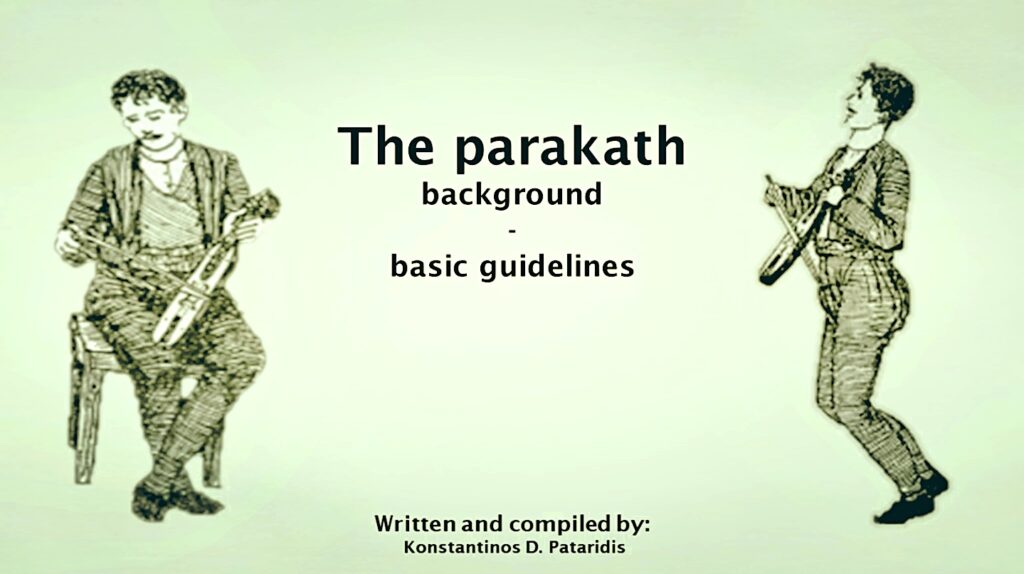
Radio Trapezounta Boston
Dedicated to the Musical Traditions of Hellenic Pontos



